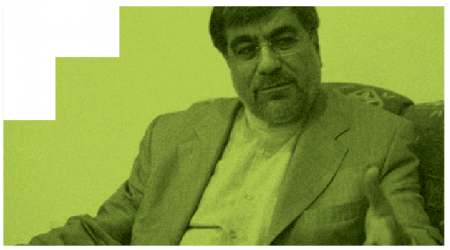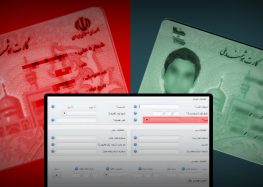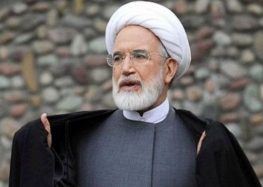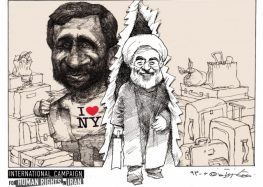Ministry of Culture and Islamic Guidance
 Books
Books
Cinema
Music
Press
Recommendations
A prolonged process for the review of book license applications and the Ministry of Culture’s refusal to issue licenses for independent publishers have led to the closure of many publishing houses.
It should be noted that in 2007, the Research and Cultural Unit of the Center for Strategic Research, with Hassan Rouhani at its helm, criticized the Ahmadinejad government’s cultural policies, stating that these policies do not allow the development of the publishing industry in Iran. The government’s policies have led to the devastation of independent Iranian publishers, many of which have either been officially shut down or have had to stop their activities under financial pressure.
Currently, the Ministry of Culture requires a strict process of review and approval for all screenplays. In July 2012, the Ministry of Culture said in a parliamentary hearing that they do not approve half of the screenplays they receive. For those screenplays that are approved, the Ministry imposes strict censorship and often requires the removal of certain scenes before release of the film. The Ministry’s restrictions include adherence to government dress codes and removal of lines in the script that may be perceived as political or critical of the government.
Iranian authorities have also created obstacles for Iranian filmmakers and actors to attend international film festivals.[1]
In addition, the previous administration initiated a trend of harassing and intimidating filmmakers, which continues to this day. Leading filmmakers have been accused of cooperating with international media or satellite networks, which is a criminal offense in Iran, and arrested and banned from making films.[2]
In January 2012, the Ministry of Culture ordered the dissolution of the House of Cinema, the largest trade association of the Iranian film industry, stating that its activities “lacked legal legitimacy.” In June 2012, after a long legal struggle between the Ministry’s Cinema Office and members of the House of Cinema, the then–Deputy in charge of Cinema for the Ministry ordered the establishment of a new government supported organization, to be called “The House of Iranian Cinema Trade Unions.” Members of the original House of Cinema have said that they do not recognize “The House of Cinema 2,” and consider its formation illegal.
In recent years, many musicians have been forced to flee Iran in order to freely pursue their work. The Ministry of Culture is charged with reviewing and approving all lyrics and music, as well as giving permission for performances. In April 2010, Hamid Shahabadi, then–Deputy Minister for the Arts for the Ministry of Culture and Islamic Guidance, stated that only 20 percent of the music reviewed receives approval by the Ministry of Culture.
This state of affairs leads many musicians to function underground. If the authorities find musicians performing unapproved music, they face imprisonment. In addition, musicians cannot publish and sell their music through legal channels without a license. In recent years, authorities have raided many underground studios, arresting artists and confiscating music and equipment.[3]
In addition, female musicians face gender-based restrictions, which vary from province to province. In Isfahan, for example, women performers are only allowed to perform for female audiences, and women taking music lessons can only perform for women. If their music teachers are men, their teachers cannot be present during their performances. In other provinces, women singers can accompany a man’s voice, but cannot be the dominant voice nor be solo singers.
Journalism falls under the purview of the Ministry of Culture and Islamic Guidance; as such the Ministry has the responsibility to uphold Iran’s constitution and protect freedom of the press. Yet there has been a rapidly intensifying crackdown on journalists and media in Iran over the past several years, mainly by the Ministry of Intelligence and the Judiciary. Journalists are routinely summoned, harassed, arrested, and sentenced to long prison terms for charges relating to their writing. In order to circumvent constitutional protections, journalists are often charged with national security–related crimes. Iranian journalists also face strict reviews in the process of applying for publication licenses, a process that is often politicized. Access to government events or press conferences is also provided to journalists based on their adherence to political criteria.
Iranian intelligence and security agencies often put pressure on media and newspapers to not cover certain issues, such as the impact of sanctions, the state of the economy, or criticism of Iran’s nuclear program. In addition, the Iranian Judiciary and prosecutors often censor newspapers before publication, sometimes leading to blank pages. The Ministry of Culture does nothing to prevent these illegal interventions.[4]
In August 2010, reformist Members of Parliament criticized the Deputy Minister of Culture for sending repeated directives to reformist newspapers restricting the topics they were allowed to cover. After the reformist newspaper Etemad-e-Melli was banned in 2009, Ghodratallah Alikhani, a reformist MP, said that at no period in Iran’s recent history has the press been as damaged as under the ministry of Mr. Hosseini, Iran’s Minister of Culture under Ahmadinejad.
The media department of the Ministry of Culture also leverages its control over paper subsidies, which a large number of papers in Iran depend upon, in order to selectively undermine publications for political reasons. Independent newspapers have been targeted in this regard, with the loss of such subsidies resulting in the closure of a number of newspapers due to financial difficulties.
Iranian Journalists Association, the most pervasive guild of reporters and journalists in Iran, was active between 1997 and 2008. In June 2008, the Ministry of Labor dissolved the association in a letter and the administrative offices of the association were sealed a few months later on orders from Saeed Mortazavi, who was at the time the Tehran Prosecutor.
Recommendations for the Ministry of Culture and Islamic Guidance:
- Protect freedom of the press: Review all applications for publication licenses without political bias and end all press censorship.
- Protect journalistic freedom from security, intelligence, and judiciary interference.
- Renew the revoked licenses of publishers and remove the restrictions on book licensing.
- End the censorship of and interference in the film industry.
- Lift the bans on filmmaking for those who have been censured; stop using bans on filmmaking as punishment.
- Stop the harassment and intimidation of filmmakers who attend international film festivals and allow for their free and unfettered participation in such forums.
- Stop obstructing the work of independent associations; reinstate the House of Cinema and allow it to operate freely.
- End the censorship of music.
- Stop the persecution and prosecution of musicians.
- End gender discrimination against female singers and musicians.
Download the full report here (PDF)






